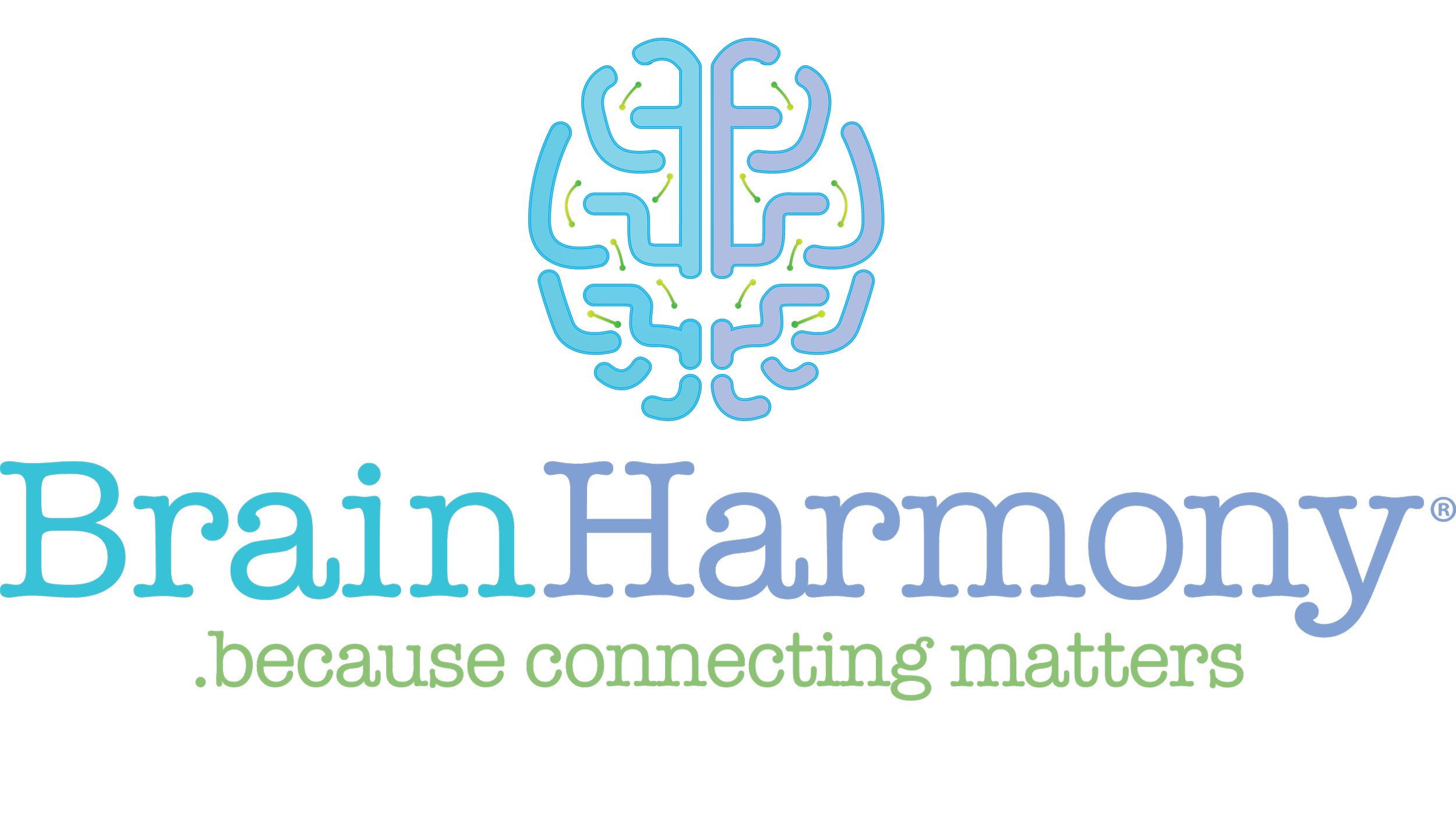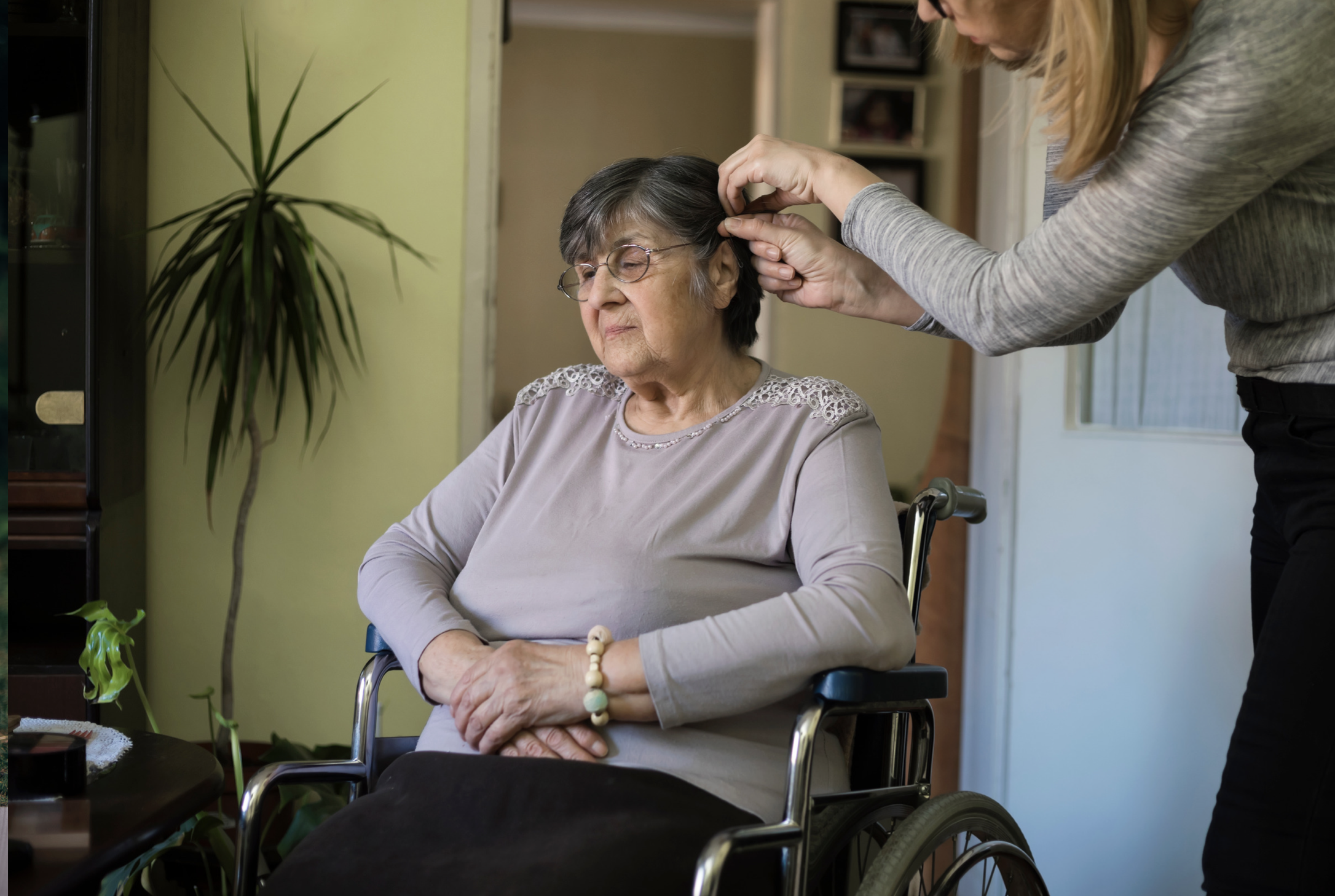Caring For The Caregiver
Being a caregiver is no easy feat, learning how to manage your stress while sometimes feeling overwhelmed. Caring for yourself is crucial, so you can be at your best when you show up for your loved ones.
Being a caregiver of someone in need is often a calling that comes on unexpectedly. While you always want to give to the ones you love, if you aren’t taking care of yourself as well, your own health is likely to suffer. This article outlines simple tools and techniques that can help you become the best caregiver you can be by supporting your own health and wellbeing.
A caregiver's job is to look after a person that is unable to care for themselves. Whether this is due to illness, disability, or age, when a caregiver is called upon, their life in many ways is no longer their own -- it's shared.
Most caregivers step in out of an act of love. When we have people in our lives that need our assistance, our heart takes the lead, and we have no choice but to act on their behalf. As a result, the ones we love get the care they need, but what happens to the caregiver?
This article will explore the dilemma that every caregiver faces in managing their own needs while also supporting those they love. We'll then give concrete tools to assist caregivers in maintaining their health as they ride the waves of overwhelm, stress, and uncertainty that comes with their role as a caregiver.
The Caregivers Dilemma
Every caregiver faces a common dilemma; how do I take care of myself while also managing someone else's health and wellbeing?
Unfortunately, more often than not, the answer is "you prioritize."
While you may very well know that sacrificing your own health for the sake of another is not in anyone's best interest, in practice, it can be incredibly challenging to put yourself first. If you've ever stepped foot on a plane, then you're familiar with the guidance:
"Should the cabin lose pressure, oxygen masks will drop from the overhead area. Please place the mask over your own mouth and nose before assisting others."
Why do they insist that you put the mask over your own mouth before, let's say, your two-year-old child's? Because if you don't take care of yourself first, you could lose oxygen, and then no one gets to breathe.
In other words, if you're going to be the "rock" for another person -- you better make sure that you're solid first.
Self-care is essential for everyone, whether you're a caregiver or not. But when you add in the stress that comes with caring for another person, it can tip the scales tremendously. In addition to all of your daily to-do's, now you have a job that requires even more focus and organization than ever before. Whether it's planning out medical appointments, driving from one place to another, making sure your loved one has everything they need to feel comfortable, or dealing with the emotional stress of uncertainty, your nervous system takes the load.
Depending on the situation, you may go directly into fight or flight mode, which is sympathetic activation. This is your survival brain that gets triggered in an emergency. When you're in fight or flight, you may actually feel like you have all the energy in the world to get everything done, but it's only because your body is tapping its vital resources to help you (and your loved one) survive.
Others may go into fold mode, where the overwhelm hits hard and it leaves you immobile and feeling helpless.
Regardless of how your body responds to stress, there is only one way back to balance, and that's through regulating your nervous system.
Creating calm in your life doesn't mean that you push aside your obligations as a caregiver, but it does mean that some priorities may shift. Read on for some simple yet effective ways to keep your nervous system strong so you can show up for others without sacrificing your own health.
Tips For Caregivers
Sensory inputs are your direct path to your nervous system. Whether through sight, sound, touch, taste, or smell, proprioception or interoception -- what you put in and around your body and how you put it, will directly impact how you feel.
You don't have to follow every guideline below to feel in balance, but choose the ones that keep you regulated, and it will enhance both how you feel and how you show up as a caregiver and how your loved one responds to your care.
Optimize Your Environment
Whether you're at home, work, in your car, at the hospital, or sitting in a waiting room, there are several ways that you can optimize your environment for more calm:
● Limit distractions and notifications of your phone
● Feed your senses
● Use essential oils (with a diffuser to fill the room with calming scents)
● Limit your exposure to negative news stories or images through screens that are stressful, addicting
● Listen to calming or uplifting music, either on your speakers, in your car, or with headphones if you're in a public space
You can go into any caregiving situation whether it is in a nursing home, hospital, home and if you can start grooming their environment by using the 4 steps to creating Calm through the Chaos at Home included here, you can keep your nervous system better regulated as well as your loved one.
Vagal Regulation
Vagal regulation is vital to helping you stay out of the fight or flight response. Your vagus nerve, the longest nerve in your body, plays an essential role in bringing you out of sympathetic mode and back into parasympathetic mode (rest and digest). Here are some simple techniques to regulate the vagus nerve and enhance your feelings of safety and calm:
● Deep belly breathing
● Cold exposure (alternating hot and cold in the shower)
● Laughter
● Self-massage
● Exercise
You can find even more ways to enhance vagal tone in our comprehensive article here.
Prioritize Sleep
One of the first things that tend to go to the wayside when you're stressed is sleep. Who has time for it anyway? Whether you're up at all hours worrying about all of the to-do's, or your body is just too cued up to relax into slumber, many people find that as caregivers, their sleep takes a significant hit.
Although you may be able to power through the first couple of weeks on limited sleep, the deprivation will catch up to you and create a snowball effect in your ability to function. Sleep is crucial for rebooting your brain and keeping you productive. Without enough sleep, even the simplest tasks become burdensome. Not to mention the fact that your patience for others will wear thin when you're struggling to keep your brain firing. This can result in hurtful encounters with the ones you love.
Of course, the suggestion to prioritize sleep can be a lot easier said than done. If you are having trouble falling asleep at night, try these tips and tricks:
● Set a bedtime for yourself, and stick to it. Getting to sleep before 11 pm is ideal. Even if you lie in bed for an hour or two at first, your body will eventually get used to its new rhythm.
● Use blue light blockers at night to minimize blue light coming into your eyes. Blue light inhibits the production of melatonin, a hormone that signals your body it's time to go to bed. If you find yourself on the computer, watching TV, or staring at your phone at night, that blue light is telling your brain, "stay awake; it's not time for bed yet." This makes it very challenging to fall asleep at a reasonable hour as your body and brain believe that it's much earlier than it actually is.
● Use Somnium GABA cream. This cream was developed to help optimize sleep, reduce your norepinephrine levels, and relax your body into a deep, sound sleep. (The above link provides a 20% discount - just add BRAINHARMONY in the coupon code.)
● Invest in a Dreampad pillow. Dreampad offers a unique sound technology that sends vibrations to your body via sound, which triggers a natural calming response, allowing you to drift off to sleep peacefully. (Use link for discount).
● Dreampad also offers a line of weighted blankets that can help provide a sense of safety when your nervous system has you on edge. These blankets feel like a warm hug.
Meditation and Prayer
Whether you're spiritual, religious, or anything in between, finding time to connect with a source of energy outside your own head is vital for maintaining your well-being.
Research shows that praying on rosary beads or chanting mantras creates rhythmic formulas that slow your breathing and initiate parasympathetic activation.
Meditation is also widely used as a way to destress and re-center. By engaging in mindful acts like prayer or meditation, you are able to gently shift your awareness so that you can look at your life more objectively. This is incredibly empowering and can support more grounding in decision-making and emotional processing.
Get Movement In
Exercise offers a myriad of health benefits and can be a lifesaver when you're feeling overwhelmed and stressed. Physical activity increases levels of your feel-good hormones, and it can make daily challenges much more manageable. Furthermore, when you exercise, it enhances vagal tone (parasympathetic mode), which helps to diminish feelings of stress.
You may not have time to do a full-blown workout every day, but that's fine. All you need is ten to fifteen minutes of activity here and there to experience increased levels of calm. If you can't make it to a workout class, try the 4 Steps to Creating CALM through Chaos download as in step 2, there are a list of activities to bring you to calm depending upon the state of your nervous system.
Some great ways to get moving include:
● Take a five to ten-minute walk
● Do a 20-minute yoga class online
● Follow a quick HIIT workout
● Do a little bodyweight resistance training at home (push-ups, wall sits, lunges)
Hydrate and Feed Yourself
Along with sleep, two other primary needs that tend to get deprioritized for caregivers are hydration and nutrition. Skipping meals and forgetting to drink water will directly impact your energy levels and your ability to stay organized. Furthermore, neglecting to feed and hydrate yourself will only drive your body further into sympathetic activation. As far as your body is concerned, if you're not eating and drinking, there must be a drought or famine going on -- that's not a time to relax.
Here are some tips to help you stay hydrated and fed:
● Bring snacks with you everywhere. Stock up on nuts and high-quality protein bars and keep them in your purse, car, backpack, and desk.
● Meal plan for the week by cooking in bulk on Sunday (or a day that works best for you). You don't have to have every meal planned, but roast up some veggies and precook some high-quality protein so you can grab lunch or dinner if you're in a pinch. This will also help you cut down on eating out or ordering.
● Fill a 32-ounce water bottle and carry it with you all day. This will provide six glasses of water that you can have on hand. Keep it with your wallet, keys, bag, or any other items you take with you when you leave your home, so you don't forget to grab it.
If You Have Extra Time
As a caregiver, it's likely that you don't find a lot of extra time for yourself. But if you do find an hour or two free or can carve out a day for yourself, here are some fantastic ways to enhance your self-care.
● Get a body work done like massage, reiki, chiropractic sessions
● Get out in nature for a walk or a hike daily, preferably in early morning and at sunset to feed your circadian rhythms regularity.
How Brain Harmony Can Help
Most of our clients at Brain Harmony come to us because they or their spouse are in need or have a child in need of neurological balance. This means that, more often than not, there is a caretaker behind the scenes.
We've found that by offering our services to families instead of individuals, everyone experienced exponential benefits. For example, we may start our friends with autism off with vagal tone protocols but once they are better regulated, we can then also share this system with their parents.
As caregivers, parents come to us repeatedly, thanking us for sharing our tools and explaining how they're better able to care for their children by incorporating our practices into their own lives.
If you're a caregiver and you feel like you've run out of steam, are starting to feel the effects of burning the candle at both ends, or are looking for a way to stay grounded through it all, Brain Harmony can help.
In addition to the tools shared in this article, we utilize one of the most well-researched and effective ways to enhance vagal tone -- the Safe and Sound Protocol (SSP). The SSP is a listening system that trains your brain gently into vagal regulation by sending sound vibrations through your ears that directly reach the vagus nerve.
Using the SSP is always our first step to creating balance in the nervous system, as this step sets the stage for deeper healing. Until you feel safe and calm, your nervous system won't slow down and relax.
We also layer in other tools that work with your nervous system, such as the Alpha-Stim and Apollo Neuro. These devices further enhance vagal tone and promote relaxation, focus, and calm.
Takeaway
Being a caregiver is an incredibly selfless act. But caring for another can often mean that your own self-care goes by the wayside. If you want to show up for your loved ones, then taking care of yourself is an absolute must. You'll be able to offer little good to those around you if you aren't healthy and strong.
Use this article as a guide whenever you can to enhance your ability to self-regulate, nourish, and ground. For even more support, reach out to Brain Harmony today for a Free Consultation to see if our services are the right fit for you.






